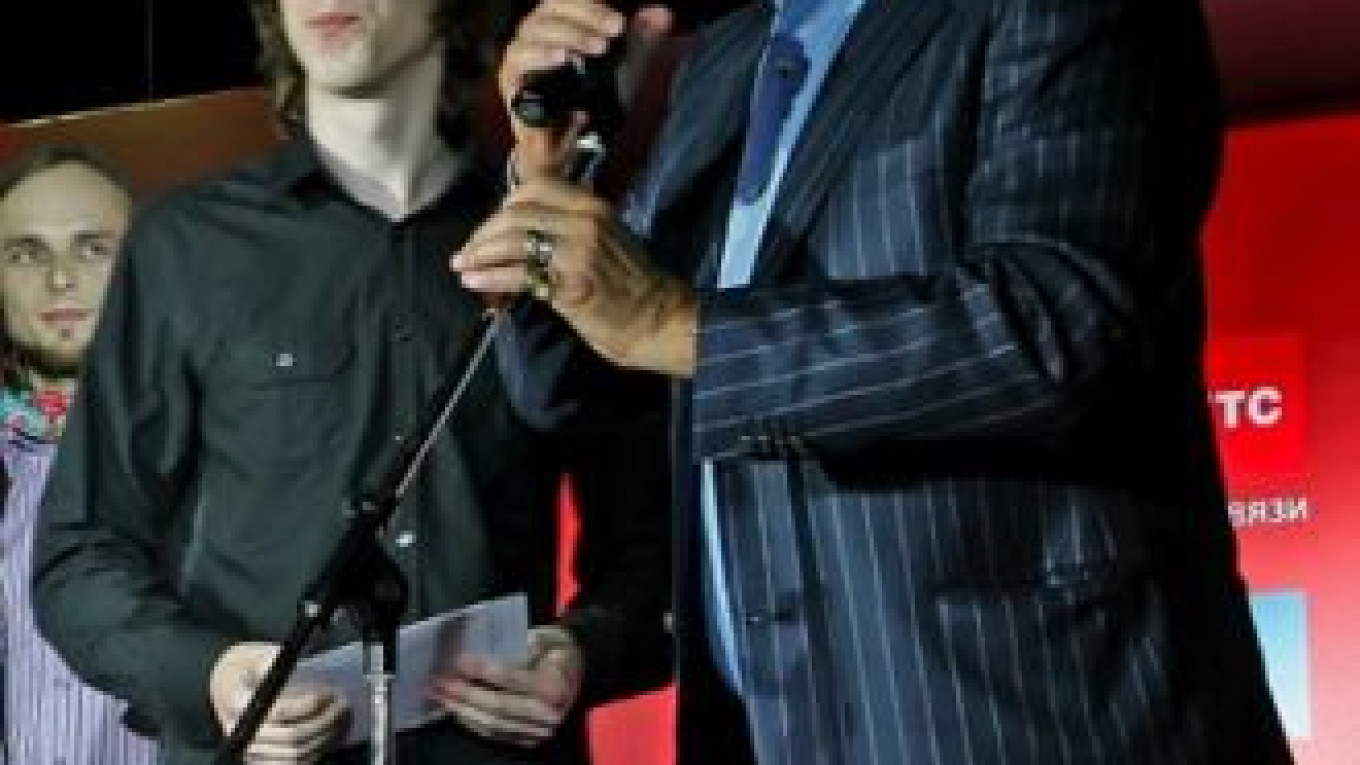What do you do if you are an Oscar-winning movie director whose name is being dragged through the mud by irate bloggers convinced that you called the Japanese disaster a just punishment from God?
Nikita Mikhalkov opened a blog, uploaded videos to YouTube, and compared himself to an exorcist determined to cast the demons out of his critics.
In all fairness, Mikhalkov's remarks do appear to have been taken out of context. But that was of little concern to his critics, who took advantage of Mikhalkov's attempts to show more openness to ask potentially embarrassing questions.
The scandal started last week after media latched onto a reported quote from Mikhalkov that the March 11 earthquake and tsunami that killed at least 16,000 people in northeastern Japan was a "divine scourge" sent to largely non-Christian Japan.
The notion that Mikhalkov, a conservative Orthodox Christian and winner of the Oscar for best foreign film in 1994, endorsed the death of thousands of Japanese clicked with his public image of a wannabe conservative ideologist accused by many critics of megalomania.
In response, Mikhalkov established a LiveJournal account titled Nikitabesogon and the YouTube channel Besogon TV. The old-fashioned Russian word "besogon" is translated "exorcist" or "demon banisher."
The blog and YouTube channel list four videos, including a recording of Mikhalkov's original interview on Japan that seems to confirm that he was speaking about the general state of the world — which, from his believer's point of view, is deteriorating ?€” and did not in fact voice approval of the Japanese calamity.
Mikhalkov also said he was open for dialogue with "interesting people" on various issues and was attempting to answer questions from bloggers.
But Mikhalkov found that bloggers are a fickle group.
Instead of limiting their questions to Japan and his film work, visitors to his sites have focused mostly on his other activities. Of special interest to bloggers is his use of a flashing blue light on his car ?€” a privilege afforded by law only to state officials and one that allows them to ignore many traffic rules. Mikhalkov, who was provided the light by the Defense Ministry, reiterated that he would not give it up because doing so "won't solve the problem of traffic jams."
Whether Mikhalkov's attempts to burnish his reputation prove successful remain to be seen. But Marat Gelman, a prominent blogger and art curator, said that at the very least the blog could provide the at times isolated filmmaker with an insight into public opinion.
“He had no real conversation partners for a long time,” Gelman said by telephone. ?€?A blog gives you a chance to understand your opponents. Maybe it will teach him something, and maybe he will also be better understood next time.?€?
The blog ?€” which Mikhalkov said is named after his heavenly patron, a fourth-century Christian martyr ?€” numbered more than 3,000 followers on Tuesday, and the four YouTube videos had a combined 100,000 views.
But many comments left by web surfers tended to be critical or joking, and the blog also scored two dozen not entirely sincere virtual gifts, including a ?€?kiss,?€? a ?€?coffin,?€? a ?€?brain?€? and ?€?a ticket to the moon.?€?
The conflict indicates a tectonic shift in Russia’s cultural landscape because Mikhalkov, 65, was until recently considered one of the country?€™s leading and most respectable filmmakers. In addition to the Academy Award for his Chekhov-tinged slice-of-life drama ?€?Burnt by the Sun?€? set during the Stalinist purges, he has won the prestigious Venice Film Festival twice.
But he did not release any movies between 1999 and 2007 while increasingly dabbling in political and business activities. In 2007, he released a documentary about Vladimir Putin, then the president. The movie, tied to Putin?€™s 55th birthday, was widely panned by critics as an excited panegyric to the country?€™s leader.
Mikhalkov cracked down hard on opponents at the Cinematographers Union in 2008 ?€” and won few friends by filming a documentary about his victory.
He released a pro-Kremlin ?€?conservative manifesto?€? last year, but the lengthy rambling document was met with little enthusiasm. Meanwhile, he pushed ahead last year with the construction of a luxury hotel in downtown Moscow, dismissing claims by residents that the work was damaging their homes. District authorities and the courts have sided with Mikhalkov, prompting allegations of foul play.
His latest film ?€” a 2010 war-drama sequel to ?€?Burnt by the Sun?€? ?€” drew unfavorable reviews and tanked at the box office. Still, the current fuss might help the filmmaker by creating some buzz. ?€?Burnt by the Sun 3: Citadel?€? is set to open in theaters on May 5, right before the Victory Day holiday.
A Message from The Moscow Times:
Dear readers,
We are facing unprecedented challenges. Russia's Prosecutor General's Office has designated The Moscow Times as an "undesirable" organization, criminalizing our work and putting our staff at risk of prosecution. This follows our earlier unjust labeling as a "foreign agent."
These actions are direct attempts to silence independent journalism in Russia. The authorities claim our work "discredits the decisions of the Russian leadership." We see things differently: we strive to provide accurate, unbiased reporting on Russia.
We, the journalists of The Moscow Times, refuse to be silenced. But to continue our work, we need your help.
Your support, no matter how small, makes a world of difference. If you can, please support us monthly starting from just $2. It's quick to set up, and every contribution makes a significant impact.
By supporting The Moscow Times, you're defending open, independent journalism in the face of repression. Thank you for standing with us.
Remind me later.


